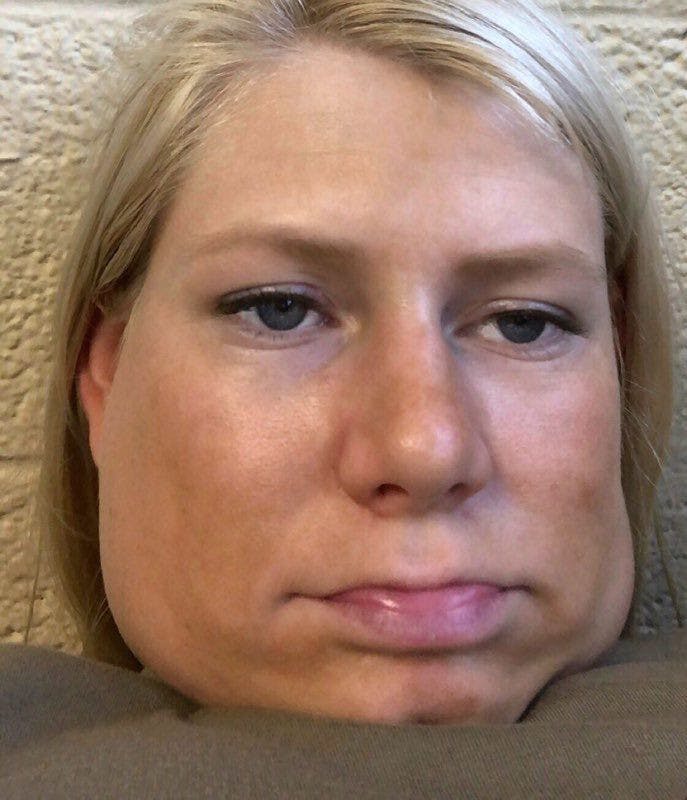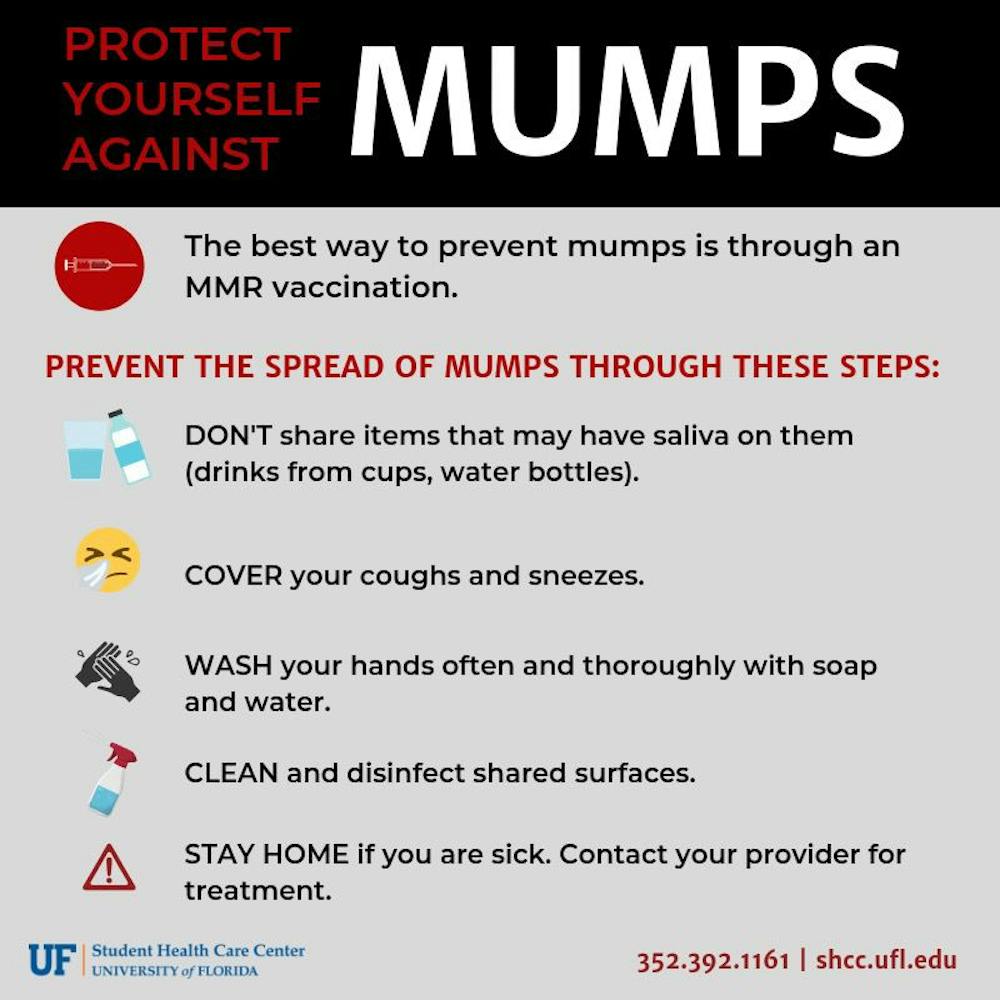On May 19, her first day of active duty at Fort Knox, second army lieutenant and recent UF criminology graduate, Caillin Heron, was eating with her friends when she noticed it was hard to chew.
The 22-year-old’s jaw discomfort worsened after swelling progressed and she woke up the next day with a 102-degree fever that sent her to the hospital, she said. Five days later, Heron was diagnosed with the mumps.

Caillin Heron, second army lieutenant and a 22-year-old UF criminology graduate, was diagnosed with the mumps in her first week of active duty at Fort Knox. Her symptoms started with a discomfort in her jaw and quickly escalated to a high fever and a very swollen jaw.
“I’m pretty pissed at UF because I don’t feel that they were very proactive when I told them I had the mumps,” Heron said. “We get alerts all the time about suspects robbing Bojangles’, but this is actually pertinent.”
Heron’s doctor told her most people receive the vaccine as a toddler, but after 20 years, the vaccine reduces to 88 percent effective.
Now, Heron encourages her friends, family and strangers to receive a third MMR vaccine to almost guarantee immunity against measles, mumps and rubella.
Heron is one of the 24 vaccinated UF students confirmed with having mumps, said UF spokesperson Steve Orlando. The university diagnosed and recorded the first mumps case of this outbreak on May 3.
Mumps is a viral illness contracted by oral transmission. The illness is characterized by swollen glands, particularly around the jawline and neck, a fever and fatigue, Orlando said.
“Saliva is the easiest way to spread it,” Orlando said. “That's why they say don't share. No sharing drinks or eating utensils and kissing another thing that is popular among college students.”
Mumps cases and outbreaks have increased every five years since 2006, according to the Centers for Disease Control and Prevention (CDC). Outbreaks can occur in communities of people who have received the standard recommended two doses or fewer of the MMR vaccine and are particularly common in close-contact settings.
High vaccination coverage helps limit the size, duration and spread of mumps outbreaks. Since the two-MMR dose vaccination program was introduced in 1989, U.S. mumps cases decreased by more than 99 percent, according to the CDC.
UF students are required to receive the MMR vaccine upon admission. Thus, all of the infected patients were vaccinated for this illness, said Cecilia Luna, marketing and communications coordinator for the UF Student Health Care Center.
The UF Student Health Care Center is coordinating with Student Affairs in posting prevention messages letting students know what they can do in their daily routines to prevent this outbreak from spreading, Luna said.
Neither Orlando nor Luna knew when the last recorded mumps outbreak in Gainesville took place.
This story has been updated as of Tuesday night to include an interview with a recent UF graduate who has the mumps and the current number of students who have the mumps.






